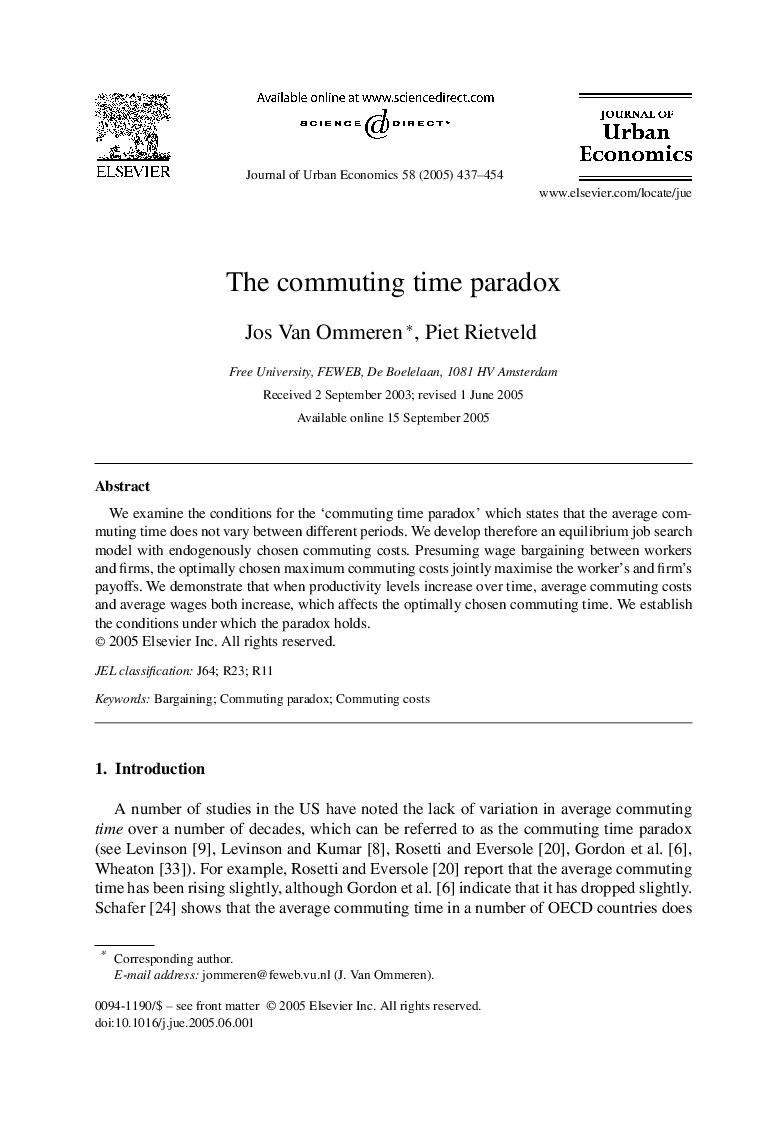| Article ID | Journal | Published Year | Pages | File Type |
|---|---|---|---|---|
| 10480010 | Journal of Urban Economics | 2005 | 18 Pages |
Abstract
We examine the conditions for the 'commuting time paradox' which states that the average commuting time does not vary between different periods. We develop therefore an equilibrium job search model with endogenously chosen commuting costs. Presuming wage bargaining between workers and firms, the optimally chosen maximum commuting costs jointly maximise the worker's and firm's payoffs. We demonstrate that when productivity levels increase over time, average commuting costs and average wages both increase, which affects the optimally chosen commuting time. We establish the conditions under which the paradox holds.
Keywords
Related Topics
Social Sciences and Humanities
Economics, Econometrics and Finance
Economics and Econometrics
Authors
Jos Van Ommeren, Piet Rietveld,
